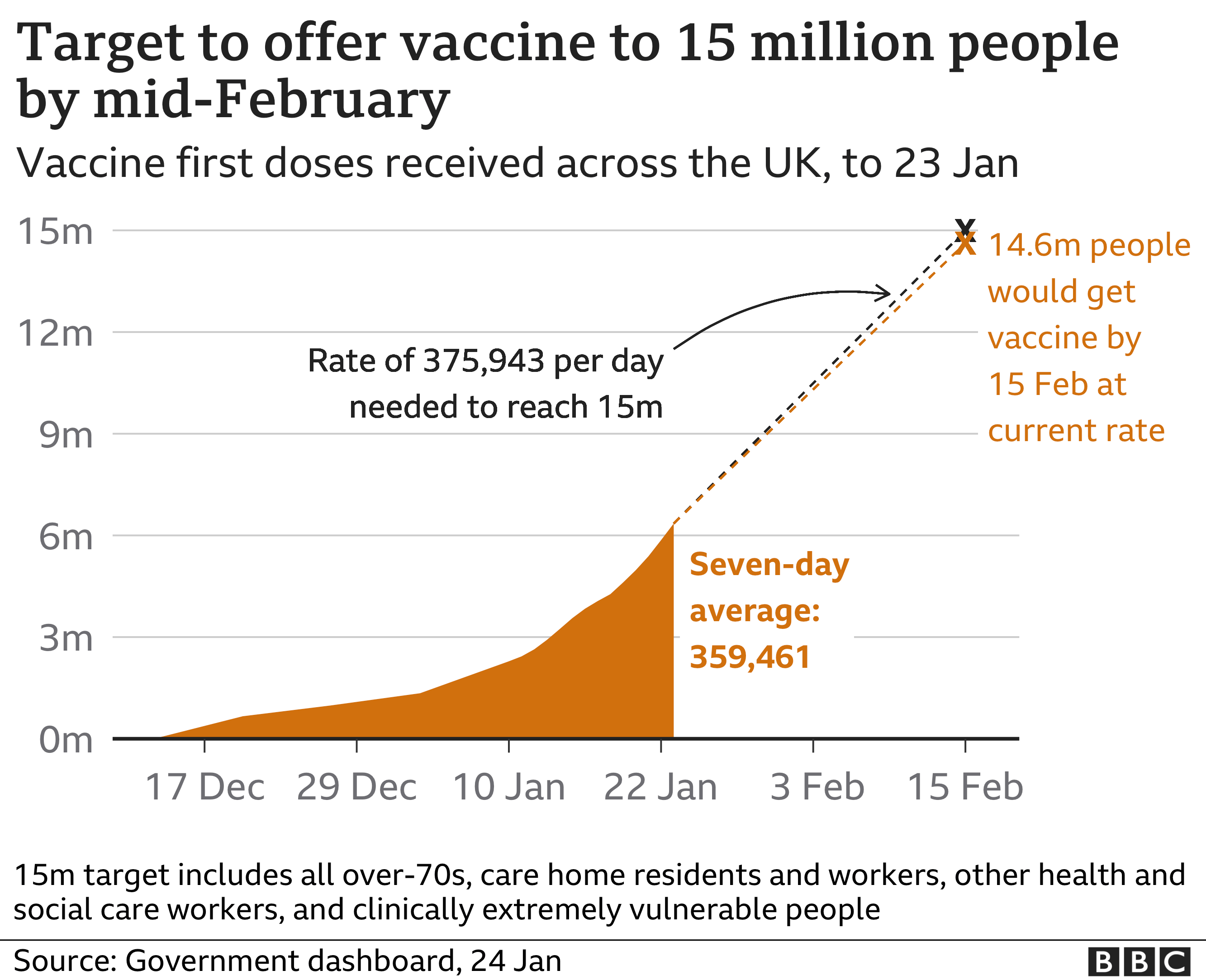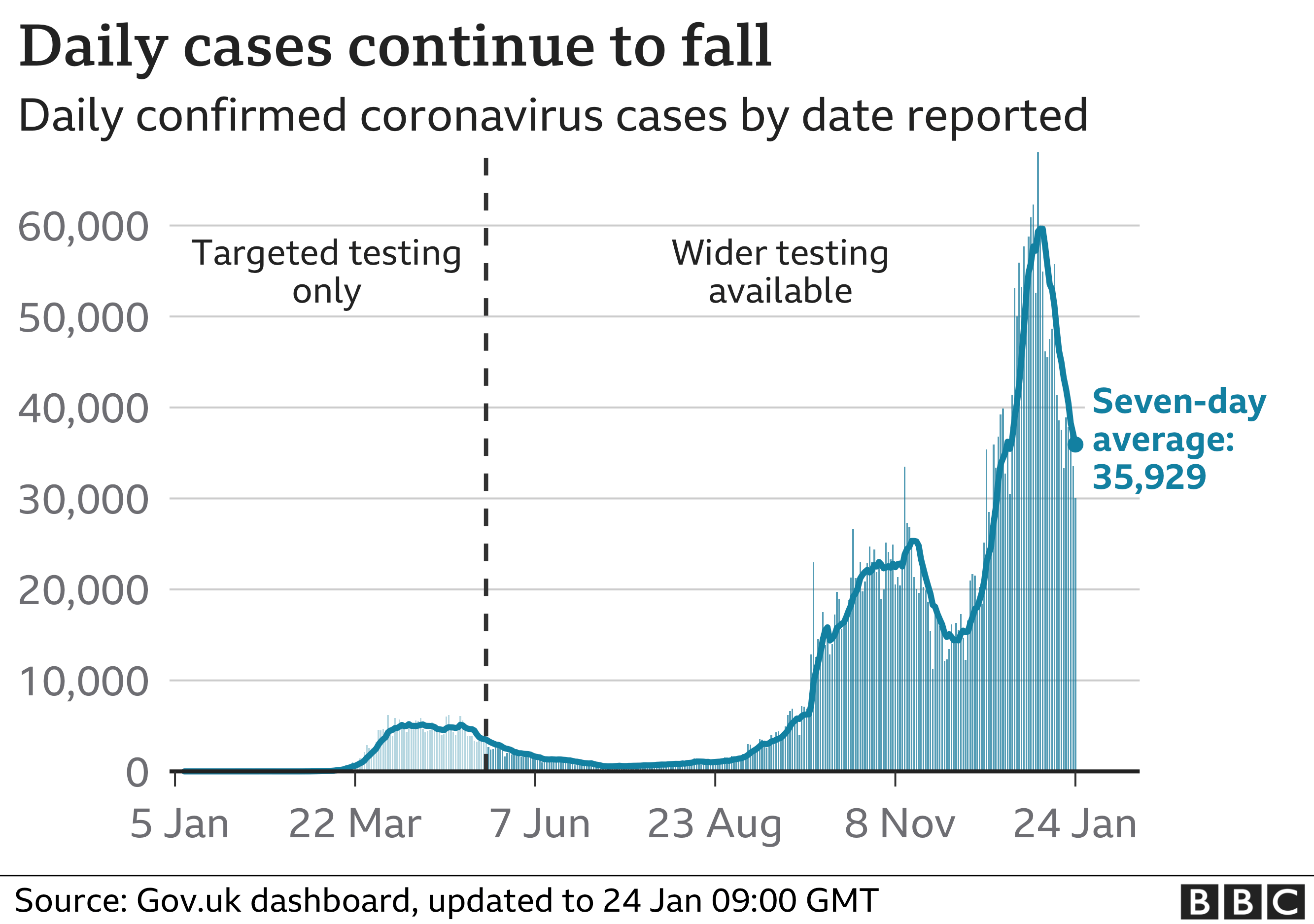The UK has identified 77 cases of the coronavirus variant first detected in South Africa, the health secretary has said.
Cases are linked to travellers arriving in the UK, rather than community transmission, Matt Hancock added.
He told the BBC’s Andrew Marr cases were under “very close” observation and enhanced contact tracing was under way.
Ministers are due to meet on Monday to consider imposing tougher restrictions on people arriving from abroad.
Scientists have said there is a chance the South African variant may harm the effectiveness of current vaccines.
Meanwhile, Mr Hancock said that “three quarters of all the 80-year-olds in the country and a similar number of care homes” have received their first doses of the vaccine.
Both the Pfizer-BioNTech and Oxford-AstraZeneca vaccines require two doses, and figures so far reflect those given the first dose.
Mr Hancock said that it was “far too early to say” what proportion of the population needed to be vaccinated before lockdown restrictions could be eased.
All viruses, including the one that causes Covid-19, mutate, and variants have been first located in the UK, South Africa and Brazil.
The South Africa variant has been found in at least 20 other countries, including the UK.
Mr Hancock said that all the South Africa variant cases in the UK were linked to travel.
“That’s why we have got such stringent border measures in place against movement from South Africa,” he added.


The UK closed all travel corridors last week until at least 15 February, with almost all travellers arriving in the country now required to show proof of a negative Covid-19 test to be allowed entry.
Prime Minister Boris Johnson has not ruled out bringing in tougher measures at UK borders, telling a Downing Street news conference on Friday: “We don’t want to put that (efforts to control Covid) at risk by having a new variant come back in.”
Ministers are set to discuss whether to tighten border restrictions further, including the possibility of hotel quarantines for travellers.
Mr Hancock said: “We have got to be cautious at the borders.”
Asked for a date on when lockdown restrictions might end, Mr Hancock said it was “one of the many things that we don’t yet know the answer to”.
Government data on 14 January showed there were 35 confirmed cases of the South Africa variant identified in the UK, and a further 12 “probable” cases.
Mr Hancock said nine cases of the Brazil variant had been found in the UK, adding “we are monitoring each and every one very closely”.
Shadow foreign secretary Lisa Nandy told the BBC’s Andrew Marr Show that Labour had been “pushing the government to take tougher measures at the border since last spring”.
She said: “We would fully expect the government to bring in tougher quarantine measures, we would expect them to roll out a proper testing strategy and we would expect them as well to start checking up on the people who are quarantining.
“Only three out of every hundred people who are asked to quarantine when they arrive into the UK actually face any checks at all – that’s just simply not sufficient.”
Source: BBC

